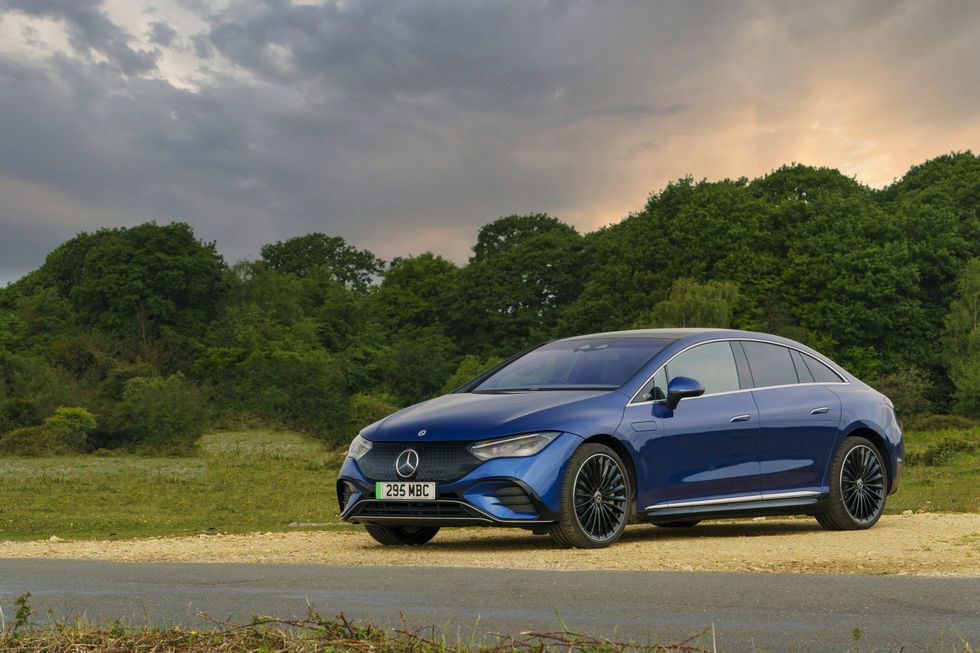Popular car maker Mercedes-Benz has halted its acceleration plans for electric vehicles as drivers remain hesitant to give up their petrol and diesel cars.
To combat the slower climate, the German brand has lowered its EV sales targets with its bosses stating that the company will no longer need the capacity initially planned for 2030.
The carmaker said it would need over 200 gigawatt hours of battery cell capacity by the end of the decade to meet its ambitious net zero goals.
But as market interest in electric cars lessens across Europe, the manufacturer said it did not expect sales of EVs, including hybrids, to reach up to 50 per cent of the total until 2030.
Do you have a story you’d like to share? Get in touch by emailingmotoring@gbnews.uk
Mercedes to increase targets for EVs by five years
MERCEDES-BENZ
This projection is five years later than its previous forecast of 2025 when the 200 GWh prediction assumed Mercedes would reach annual EV sales of about two million vehicles.
The brand’s Chief Technology Officer Markus Schaefer said: “Is the 200GWh capacity still necessary? It’s a question of the timeline.”
The carmaker signed a deal with Chinese battery manufacturer CATL in 2022 to receive battery cells from the 100 GWh plant being built in Hungary.
Schaefer added: “We are relatively flexible. We will think about next steps when we have more transparency on demand. This is enough to cover the next stage.”
Last year, Ola Kaellenius, CEO of Mercedes-Benz, warned that Europe would likely not be ready for an all-electric lineup by the end of the decade.
He explained that drivers were holding back from investing in electric cars as a result of expensive upfront prices and a lack of charging provisions.
However, the car boss reassured motorists and investors that the brand was “well-positioned” to continue production of vehicles with internal combustion engines.
Mercedes-Benz Group sold almost 2.5 million vehicles in 2023 despite supply chain constraints causing production issues.
Schaefer spoke to Reuters at the launch of the research and production centre for battery cells at Mercedes-Benz’s headquarters.
The site will aim to produce thousands of battery cells a year in a 10,000-square-metre factory.
Mercedes-Benz said it is working on lithium-ion cells with “high-energy anodes and cobalt-free cathodes”.
By 2039, the company aims for its fleet of new vehicles to be net carbon neutral over their entire lifecycle.
LATEST DEVELOPMENTS:

The Mercedes-Benz EQE is one of the brand’s best-selling EVs
MERCEDES-BENZ
Mercedes-Benz sells several popular electric models including the EQE and EQS saloons and the EQA, EQB, EQE and EQS SUV models.

